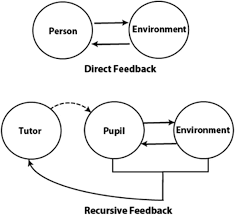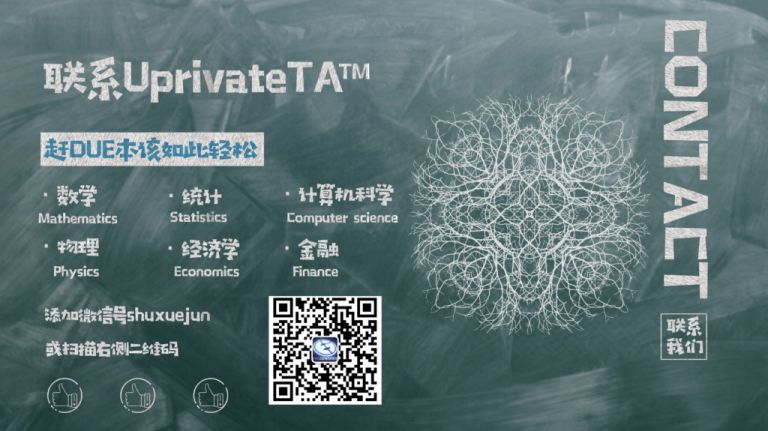如果你也在 怎样代写机器学习machine learning这个学科遇到相关的难题,请随时右上角联系我们的24/7代写客服。
机器学习是一种数据分析的方法,可以自动建立分析模型。它是人工智能的一个分支,其基础是系统可以从数据中学习,识别模式,并在最小的人为干预下做出决定。
statistics-lab™ 为您的留学生涯保驾护航 在代写机器学习machine learning方面已经树立了自己的口碑, 保证靠谱, 高质且原创的统计Statistics代写服务。我们的专家在代写机器学习machine learning代写方面经验极为丰富,各种代写机器学习machine learning相关的作业也就用不着说。
我们提供的机器学习machine learning及其相关学科的代写,服务范围广, 其中包括但不限于:
- Statistical Inference 统计推断
- Statistical Computing 统计计算
- Advanced Probability Theory 高等概率论
- Advanced Mathematical Statistics 高等数理统计学
- (Generalized) Linear Models 广义线性模型
- Statistical Machine Learning 统计机器学习
- Longitudinal Data Analysis 纵向数据分析
- Foundations of Data Science 数据科学基础
统计代写|机器学习作业代写machine learning代考|Smart Economy
The goal of a Smart Economy is to establish a world order that realizes a state of commonwealth for the equitable distribution of resources to all of humanity with a broader planetary benefit. A new convergence of monetary systems and forms of exchange based on decentralized and distributed digital monetary systems will allow the flow of capital in more fluid and targeted means. The ability to localize and scale economic instruments will more effectively serve the needs of diverse and specific populations and uses, protecting natural resources and reducing poverty worldwide. This form of structural deterministic exchange will adapt to meet the demands of each market environment, establishing new forms of economic valuation whereby the true social and environmental cost will be accounted for and all stakeholders including living creatures and nature itself will be recognized and protected for contributing to the maintenance of the ecosystem.
Digital transformation is a key driver for the establishment of new economic systems. Distributed and decentralized platforms, public private partnerships, $B 2 B$, $\mathrm{B} 2 \mathrm{C}$, and peer-to-peer (P2P) channels are enabling new forms of value creation and exchange to fully democratize access to resources, markets, and assets. Innovation built on the maximization of data and the continuous convergence of decentralized networks are forming the foundation of a new and exciting economic order defined by principles of sustainability, inclusiveness, social responsibility, societal well-being and commonwealth. This data rich economic order will be defined by an exponential growth in productivity resulting from increased levels of automation and artificial intelligence. Blockchain and Holochain will record transactional patterns as distributed ledger systems securely, efficiently and transparently. Cryptocurrencies and tokenization will offer alternative monetary instruments for exchange and global stores of value (Table 3 ).
统计代写|机器学习作业代写machine learning代考|Smart Mobility
Smart Mobility is about a new freedom of choice. The shift from cybernetic-driven point-to-point transportation to a new stage of integrated mobility solutions driven by $\mathrm{AI}$ is characterized by multimodality, autonomy and on-demand customized
passenger experiences. The transformation and evolution in urban mobility bring an increased sense of well-being for individuals and society. Yet the essence of mobility has not changed much, as people have an intrinsic necessity to be free to explore new destinations and to overcome constraints of distance and time. The self-regulating nature of smart mobility systems is further enhanced by the shifting focus towards creating unique and carefully designed user experiences and lifestyle options as today’s citizens become more environmentally sensitive and health conscious and as new forms of travel, spatial-motion, entertainment, and lifestyle converge.
New mobility solutions have been made possible through the convergence of hardware and software technologies and applications working together to bring human-like qualities to machines. Sentience and cognition function as a higher intelligence for inanimate objects to have the ability to read the environmental terrain, process complex multi-dimensional datasets, analyze big data to predict urban conditions and patterns to determine optimum pathways and to enable the continuous flow and combinations of mobility alternatives. By gaining a better comprehension of the architecture and behavior at every scale of our complex dynamic urban systems, we can develop anticipatory capabilities that continually improve through machine learning algorithms as a built-in properties for autonomous and self-regulating systems (Table 4).
统计代写|机器学习作业代写machine learning代考|Smart Governance
The purpose of Smart Government is to arrive at a global state of inclusiveness characterized by citizen responsibility \& participation, transparency, shared resources, and open-source communication. These protocols are geared towards promoting individual and collective well-being, security, and prosperity. The digitalization of public services will enable, promote, encourage, and demand increased new forms of citizen engagement. Certain states around the world have pioneered new inclusive systems of governance empowering their citizens to build on the social organizational theory of self-governance. Rethinking government systems as a series of interconnected cybernetic, autopoietic, anticipatory systems will
help governments to better navigate the increasingly complex and decentralized landscape.
The IoT is enabling unprecedented insights into granular data collected from trillions of interconnected devices across cities. This is powering machine learning and consequently enabling increasingly complex predictive modeling used for timely and impactful decision-making. Smart Governance systems, due to their inherent complexities and legacy “code,” will require a truly hybrid approach, where all systems must lead to, and over time converge. Predictive analytics and neural networks will empower governance systems to anticipate risks, ensuring continuous improvement and stewardship for citizens. In this way Smart Governance can reach self-regulation through a combination of top-down and bottom-up states in which the awareness and prediction of patterns and trends will optimize system performance. By tapping into collective behavior, the integration of disconnected agencies into a unified platform will enable hyper personalized citizen experiences, bringing about accountability, transparency, and increased trust between governments and citizens (Table 5).
机器学习代写
统计代写|机器学习作业代写machine learning代考|Smart Economy
智能经济的目标是建立一个世界秩序,实现一个为全人类公平分配资源并为地球带来更广泛利益的联邦国家。基于去中心化和分布式数字货币系统的货币系统和交换形式的新融合将允许资本以更加流动和有针对性的方式流动。本地化和扩展经济工具的能力将更有效地满足多样化和特定人群和用途的需求,保护自然资源并减少全球贫困。这种结构性确定性交换形式将适应每个市场环境的需求,
数字化转型是建立新经济体系的关键驱动力。分布式和去中心化平台,公私合作伙伴关系,乙2乙, 乙2C,点对点 (P2P) 渠道正在支持新形式的价值创造和交换,以使资源、市场和资产的访问完全民主化。建立在数据最大化和去中心化网络持续融合之上的创新正在形成一个令人兴奋的新经济秩序的基础,该秩序由可持续性、包容性、社会责任、社会福祉和联邦等原则定义。这种数据丰富的经济秩序将由自动化和人工智能水平的提高导致的生产力指数级增长来定义。区块链和 Holochain 将安全、高效和透明地将交易模式记录为分布式账本系统。加密货币和代币化将为交换和全球价值存储提供替代货币工具(表 3)。
统计代写|机器学习作业代写machine learning代考|Smart Mobility
智能移动是一种新的选择自由。从控制论驱动的点对点运输转变为由驱动的综合移动解决方案的新阶段一种一世以多模态、自主化、按需定制为特点
乘客体验。城市交通的转型和演变为个人和社会带来了更高的幸福感。然而,流动性的本质并没有太大变化,因为人们天生就有自由探索新目的地并克服距离和时间限制的必要性。随着今天的公民变得更加环保和健康意识以及旅行、空间运动、娱乐、和生活方式融合。
通过硬件和软件技术的融合以及应用程序的融合,新的移动解决方案成为可能,从而为机器带来类似人类的品质。感知和认知功能作为无生命物体的更高智能,具有读取环境地形、处理复杂的多维数据集、分析大数据以预测城市状况和模式以确定最佳路径并实现连续流动和组合的能力。流动性替代品。通过更好地理解复杂动态城市系统的各个规模的架构和行为,我们可以开发预测能力,通过机器学习算法作为自主和自我调节系统的内置属性不断改进(表 4)。
统计代写|机器学习作业代写machine learning代考|Smart Governance
智能政府的目的是达到以公民责任和参与、透明度、共享资源和开源通信为特征的全球包容性状态。这些协议旨在促进个人和集体的福祉、安全和繁荣。公共服务的数字化将促成、促进、鼓励和要求增加公民参与的新形式。世界上某些国家开创了新的包容性治理体系,赋予其公民以自我治理的社会组织理论为基础的能力。将政府系统重新思考为一系列相互关联的控制论、自创生、预期系统将
帮助政府更好地驾驭日益复杂和分散的环境。
物联网正在对从城市中数以万亿计的互连设备收集的细粒度数据提供前所未有的洞察力。这为机器学习提供了动力,从而使越来越复杂的预测模型能够用于及时和有影响力的决策。智能治理系统,由于其固有的复杂性和遗留“代码”,将需要一种真正的混合方法,所有系统都必须通向并随着时间的推移而融合。预测分析和神经网络将使治理系统能够预测风险,确保公民的持续改进和管理。通过这种方式,智能治理可以通过自上而下和自下而上的状态相结合来实现自我调节,在这种状态下,对模式和趋势的感知和预测将优化系统性能。通过利用集体行为,
统计代写请认准statistics-lab™. statistics-lab™为您的留学生涯保驾护航。
金融工程代写
金融工程是使用数学技术来解决金融问题。金融工程使用计算机科学、统计学、经济学和应用数学领域的工具和知识来解决当前的金融问题,以及设计新的和创新的金融产品。
非参数统计代写
非参数统计指的是一种统计方法,其中不假设数据来自于由少数参数决定的规定模型;这种模型的例子包括正态分布模型和线性回归模型。
广义线性模型代考
广义线性模型(GLM)归属统计学领域,是一种应用灵活的线性回归模型。该模型允许因变量的偏差分布有除了正态分布之外的其它分布。
术语 广义线性模型(GLM)通常是指给定连续和/或分类预测因素的连续响应变量的常规线性回归模型。它包括多元线性回归,以及方差分析和方差分析(仅含固定效应)。
有限元方法代写
有限元方法(FEM)是一种流行的方法,用于数值解决工程和数学建模中出现的微分方程。典型的问题领域包括结构分析、传热、流体流动、质量运输和电磁势等传统领域。
有限元是一种通用的数值方法,用于解决两个或三个空间变量的偏微分方程(即一些边界值问题)。为了解决一个问题,有限元将一个大系统细分为更小、更简单的部分,称为有限元。这是通过在空间维度上的特定空间离散化来实现的,它是通过构建对象的网格来实现的:用于求解的数值域,它有有限数量的点。边界值问题的有限元方法表述最终导致一个代数方程组。该方法在域上对未知函数进行逼近。[1] 然后将模拟这些有限元的简单方程组合成一个更大的方程系统,以模拟整个问题。然后,有限元通过变化微积分使相关的误差函数最小化来逼近一个解决方案。
tatistics-lab作为专业的留学生服务机构,多年来已为美国、英国、加拿大、澳洲等留学热门地的学生提供专业的学术服务,包括但不限于Essay代写,Assignment代写,Dissertation代写,Report代写,小组作业代写,Proposal代写,Paper代写,Presentation代写,计算机作业代写,论文修改和润色,网课代做,exam代考等等。写作范围涵盖高中,本科,研究生等海外留学全阶段,辐射金融,经济学,会计学,审计学,管理学等全球99%专业科目。写作团队既有专业英语母语作者,也有海外名校硕博留学生,每位写作老师都拥有过硬的语言能力,专业的学科背景和学术写作经验。我们承诺100%原创,100%专业,100%准时,100%满意。
随机分析代写
随机微积分是数学的一个分支,对随机过程进行操作。它允许为随机过程的积分定义一个关于随机过程的一致的积分理论。这个领域是由日本数学家伊藤清在第二次世界大战期间创建并开始的。
时间序列分析代写
随机过程,是依赖于参数的一组随机变量的全体,参数通常是时间。 随机变量是随机现象的数量表现,其时间序列是一组按照时间发生先后顺序进行排列的数据点序列。通常一组时间序列的时间间隔为一恒定值(如1秒,5分钟,12小时,7天,1年),因此时间序列可以作为离散时间数据进行分析处理。研究时间序列数据的意义在于现实中,往往需要研究某个事物其随时间发展变化的规律。这就需要通过研究该事物过去发展的历史记录,以得到其自身发展的规律。
回归分析代写
多元回归分析渐进(Multiple Regression Analysis Asymptotics)属于计量经济学领域,主要是一种数学上的统计分析方法,可以分析复杂情况下各影响因素的数学关系,在自然科学、社会和经济学等多个领域内应用广泛。
MATLAB代写
MATLAB 是一种用于技术计算的高性能语言。它将计算、可视化和编程集成在一个易于使用的环境中,其中问题和解决方案以熟悉的数学符号表示。典型用途包括:数学和计算算法开发建模、仿真和原型制作数据分析、探索和可视化科学和工程图形应用程序开发,包括图形用户界面构建MATLAB 是一个交互式系统,其基本数据元素是一个不需要维度的数组。这使您可以解决许多技术计算问题,尤其是那些具有矩阵和向量公式的问题,而只需用 C 或 Fortran 等标量非交互式语言编写程序所需的时间的一小部分。MATLAB 名称代表矩阵实验室。MATLAB 最初的编写目的是提供对由 LINPACK 和 EISPACK 项目开发的矩阵软件的轻松访问,这两个项目共同代表了矩阵计算软件的最新技术。MATLAB 经过多年的发展,得到了许多用户的投入。在大学环境中,它是数学、工程和科学入门和高级课程的标准教学工具。在工业领域,MATLAB 是高效研究、开发和分析的首选工具。MATLAB 具有一系列称为工具箱的特定于应用程序的解决方案。对于大多数 MATLAB 用户来说非常重要,工具箱允许您学习和应用专业技术。工具箱是 MATLAB 函数(M 文件)的综合集合,可扩展 MATLAB 环境以解决特定类别的问题。可用工具箱的领域包括信号处理、控制系统、神经网络、模糊逻辑、小波、仿真等。

